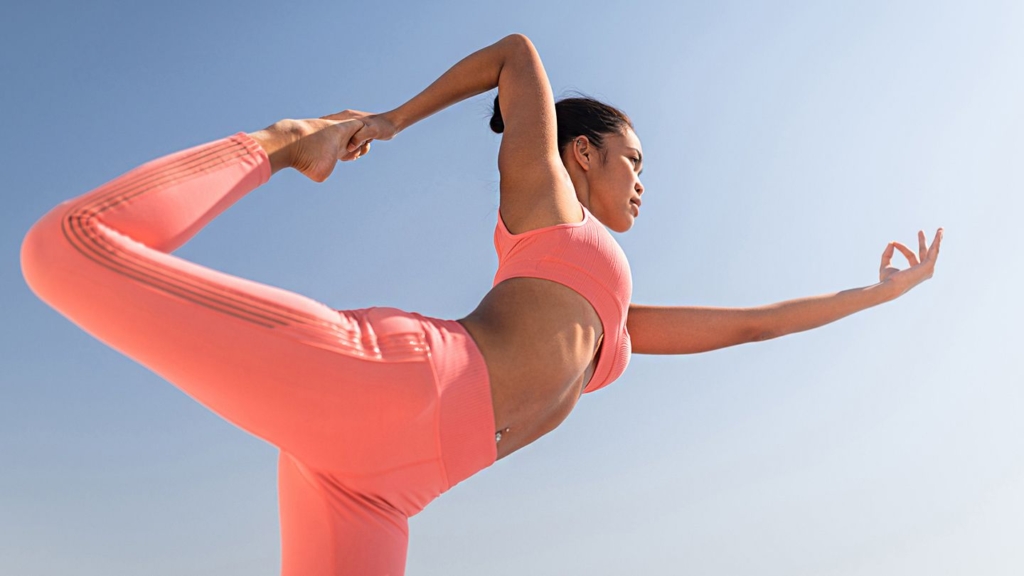Depression, a common and serious mental health condition, affects millions of people worldwide. It can leave individuals feeling overwhelmed, hopeless, and disconnected from their daily lives. While traditional treatments such as therapy and medication are often recommended, alternative practices like yoga are gaining attention for their ability to support mental well-being. But can yoga really help treat depression? In this article, we’ll explore how yoga might help alleviate depression symptoms, the science behind its benefits, and whether it can be used as a standalone treatment or complementary therapy.
Understanding Depression
Before diving into the potential benefits of yoga for depression, it’s essential to understand what depression is and how it affects the body and mind. Depression is more than just feeling sad or down for a few days; it’s a persistent mood disorder characterized by symptoms such as:
- Persistent feelings of sadness or emptiness
- Loss of interest in activities once enjoyed
- Fatigue and decreased energy
- Difficulty concentrating, remembering, or making decisions
- Sleep disturbances, such as insomnia or oversleeping
- Appetite or weight changes
- Feelings of worthlessness or guilt
- Thoughts of death or suicide
Depression affects not only mental and emotional health but also physical well-being, making it a holistic condition that can be challenging to treat. For many, the combination of therapy, lifestyle changes, and medication helps manage depression. However, some individuals are seeking alternative or complementary approaches like yoga to enhance their recovery.
The Role of Yoga in Mental Health
Yoga is an ancient practice that originated in India over 5,000 years ago. While traditionally rooted in spirituality and mindfulness, modern yoga encompasses physical postures (asanas), breathing exercises (pranayama), and meditation, all of which can contribute to improved physical and mental health.
The primary reason yoga is being explored as a treatment for depression lies in its potential to reduce stress, promote relaxation, and enhance overall mental clarity. Yoga emphasizes a mind-body connection, and practitioners often report feeling more grounded, balanced, and peaceful after sessions. This sense of balance may be particularly beneficial for those suffering from depression, as it can counteract some of the common symptoms like anxiety, low energy, and emotional instability.

How Yoga Can Help Treat Depression
- Stress Reduction and Cortisol Regulation Depression often comes hand-in-hand with chronic stress. When stress levels rise, the body produces excess cortisol, a hormone that can worsen depression symptoms by increasing inflammation and disrupting sleep patterns. Yoga has been shown to reduce cortisol levels by promoting relaxation and reducing stress. A study published in the Journal of Alternative and Complementary Medicine found that participants who practiced yoga regularly had significantly lower levels of cortisol compared to non-practitioners. Lowering cortisol helps break the cycle of stress and depression, making it easier for individuals to manage their symptoms.
- Enhancing Mood and Boosting Serotonin Levels Serotonin is a neurotransmitter often associated with feelings of well-being and happiness. Individuals with depression frequently have lower levels of serotonin, which can contribute to their symptoms. Yoga, particularly when combined with breathing exercises and meditation, has been shown to increase serotonin production. A study published in Harvard Mental Health found that yoga helps stimulate the release of neurotransmitters, including serotonin, which can elevate mood and combat feelings of sadness or hopelessness.
- Improving Sleep Sleep disturbances, such as insomnia or oversleeping, are common in individuals with depression. Sleep quality has a significant impact on mental health, and poor sleep can exacerbate symptoms of depression. Practicing yoga, especially restorative and meditative styles like Hatha or Yin yoga, can promote better sleep by calming the nervous system, reducing tension, and creating a more relaxed mental state. Regular yoga practice can help individuals establish healthier sleep patterns, leading to improved mood and overall well-being.
- Promoting Mindfulness and Emotional Regulation Depression often leads to ruminating thoughts, where individuals replay negative emotions or scenarios repeatedly in their minds. Yoga encourages mindfulness, or the ability to stay present in the moment without judgment. Through mindfulness practices, individuals can learn to observe their thoughts without getting caught in negative spirals. Research has shown that mindfulness-based practices, such as yoga, can improve emotional regulation and reduce depressive symptoms. A study in The Journal of Clinical Psychology demonstrated that yoga helps individuals break free from negative thinking patterns by cultivating a sense of inner calm and emotional awareness.
- Increasing Physical Activity Physical activity is one of the most widely recommended non-medication treatments for depression. Exercise releases endorphins, which are natural mood boosters. However, for someone suffering from depression, finding the motivation for intense exercise can be difficult. Yoga provides a more accessible, low-impact form of exercise that combines gentle movement with breathwork and meditation. Even a short daily practice can release endorphins, improve energy levels, and counteract the lethargy commonly associated with depression.
- Building Social Connection Depression often causes individuals to withdraw from social activities, leading to feelings of isolation and loneliness. Joining a yoga class can provide a sense of community and belonging. Practicing yoga in a group setting allows individuals to connect with others who may share similar experiences or challenges, offering emotional support and reducing feelings of isolation. Many yoga studios foster a nurturing environment, where individuals can build relationships and feel part of a supportive community, which can be immensely helpful in overcoming depression.
Scientific Studies on Yoga and Depression
Numerous studies have explored the effectiveness of yoga as a treatment for depression, and the results are promising. Here are some key findings:
- A 2017 study published in the Journal of Affective Disorders found that individuals with major depressive disorder who participated in twice-weekly yoga sessions showed significant improvements in mood, reduced anxiety, and decreased depression severity after just 8 weeks of practice.
- Another study in Complementary Therapies in Medicine found that yoga improved the overall well-being and quality of life for individuals with depression, and participants reported feeling more relaxed, emotionally balanced, and less anxious.
- In a 2016 meta-analysis published in the Journal of Clinical Psychology, researchers found that yoga, when practiced regularly, had a moderate effect in reducing depression symptoms, with results comparable to other complementary therapies like meditation and aerobic exercise.
These studies indicate that yoga can be an effective adjunctive treatment for depression, especially when combined with other forms of therapy.
Yoga as a Complementary Treatment
It’s important to note that while yoga can offer numerous benefits for individuals with depression, it should not be viewed as a replacement for professional treatment, particularly for those with severe depression. Therapy, medication, and lifestyle changes remain the most effective primary treatments for managing depression.
However, yoga can serve as an excellent complementary treatment to enhance the effectiveness of other therapies. By incorporating yoga into a holistic approach, individuals may find relief from symptoms, increased emotional resilience, and a greater sense of peace.

Choosing the Right Yoga Style for Depression
Not all yoga styles are the same, and different types may be more suitable depending on individual needs. Here are some recommendations for styles of yoga that may be particularly beneficial for individuals with depression:
- Hatha Yoga: A gentle form of yoga that focuses on basic postures and breathwork, Hatha is a good option for beginners and those looking for a slower-paced practice.
- Yin Yoga: A restorative practice that focuses on long holds in poses and deep relaxation, Yin yoga is ideal for reducing stress and promoting emotional balance.
- Vinyasa Yoga: A more dynamic style that links movement with breath, Vinyasa yoga can provide a physical challenge while also promoting mental focus and clarity.
- Kundalini Yoga: Known for its focus on breathwork, chanting, and meditation, Kundalini yoga can help elevate mood and promote mental well-being.
Conclusion
Yoga can be a powerful tool for managing depression, offering a range of physical, emotional, and psychological benefits. Through stress reduction, improved sleep, enhanced mood, and increased mindfulness, yoga addresses many of the common symptoms of depression. While it should not replace professional treatment for those with severe depression, it can be an effective complementary therapy that supports a holistic approach to mental health.
For individuals seeking natural ways to alleviate depression symptoms, incorporating a regular yoga practice into their routine can offer significant relief and contribute to a greater sense of balance, peace, and well-being. Whether practiced in a class or at home, yoga provides a gentle yet effective way to support mental health and build resilience against depression.


